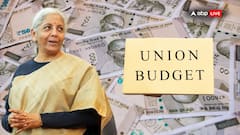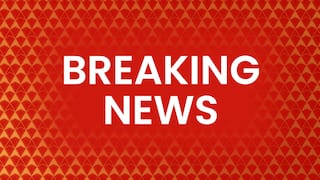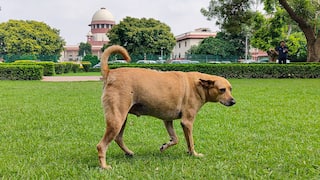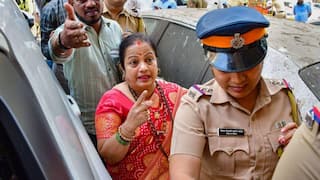Union Budget 2024 FAQ: 25 Most Asked Questions Around Budget Terminologies Answered
Union Budget aims to guide economic trajectory, addressing infrastructure, job creation, inflation, fiscal consolidation, outlining revenue and expenditure, setting priorities for growth & stability.

Union Budget 2024: All eyes are on the upcoming Union Budget 2024, a financial blueprint that will chart the course for the country's economic future. To be presented by Finance Minister Nirmala Sitharaman, the Narendra Modi government’s first Union Budget in its third term is poised to address key issues facing the nation, from infrastructure development and job creation to inflation control and fiscal consolidation.
In the midst of economic challenges and global uncertainties, the Union Budget serves as a crucial tool for the government to outline its priorities, allocate resources, and set the tone for economic growth and stability. To help you navigate through the complexities of the budget, we've compiled a set of 25 questions that cover essential aspects of India's financial planning and policies.
1. What is the fiscal year period in India?
April 1 to March 31.
2. What Is The Primary Purpose Of The Union Budget?
The primary purpose of the Union Budget is to outline the government's revenue and expenditure for the upcoming fiscal.
3. What Is The Term Used For Detailed Estimates Of Government Spending And Revenue?
Budget estimates are projections made by the government outlining expected revenues and planned expenditures for the upcoming financial year. These estimates form the foundation of the annual budget and are based on various economic indicators, historical data, and policy objectives. Budget estimates are subject to revisions as actual financial performance data becomes available and economic conditions change.
4. What Is A Fiscal Deficit?
A fiscal deficit occurs when a government's total expenditures exceed its total revenues, excluding borrowing, within a fiscal year. It indicates that the government is spending more money than it is earning through various sources like taxes, fees, and other revenues. This deficit is usually financed by borrowing from domestic or international sources or by printing more money.
5. What Does The Term Direct Tax Refer To?
Taxes that are directly paid to the government by the taxpayer, such as income tax, are direct taxes.
6. What Is An Indirect Tax?
Indirect taxes are collected by intermediaries (like retailers) from the consumer. Goods and Services Tax (GST) is an indirect tax.
7. What Is The Union Excise Duty?
Union Excise Duty is a form of indirect tax levied by the Central Government of India on the manufacture and production of goods within the country. This duty is imposed on goods at the time of their production or manufacture, not at the time of sale. It is collected by the government from the producers or manufacturers of goods, and the burden of this tax is usually passed on to the consumers in the form of higher prices.
8. What Is Capital Expenditure?
Capital expenditure refers to funds used by a government or organization to acquire, upgrade, and maintain physical assets such as property, industrial buildings, or equipment. These expenses are aimed at creating future benefits, enhancing productivity, and are typically long-term investments.
9. What Is Revenue Expenditure?
Revenue expenditure is the spending on the day-to-day functioning and operational activities of the government or an organization. These expenses are incurred for short-term benefits and include salaries, utilities, maintenance, and other operating costs that are essential for running daily operations.
10. What Is Inflation?
Inflation is the rate at which the general level of prices for goods and services rises, eroding purchasing power. It is measured by indices such as the Consumer Price Index (CPI) and indicates the decrease in the value of a currency over time.
11. What Is The Significance Of The Economic Survey?
The Economic Survey typically released a day before the Union Budget presentation provides a detailed analysis of the economy over the past year and lays the groundwork for the budget.
12. What Is The Finance Bill?
The Finance Bill is introduced in Parliament every year to give effect to the financial proposals of the government.
13. What Is Plan Expenditure?
Plan expenditure refers to the spending outlined in a government's plans aimed at achieving economic growth and development objectives. It includes investments in infrastructure, social services, and other projects aligned with the country's long-term development goals.
14. What Is Non-Plan Expenditure?
Non-Plan expenditure encompasses all other government spending not included in Plan. It covers routine operational costs, such as salaries, subsidies, interest payments, defence, and administrative expenses, and is essential for maintaining government functions.
15. Who Approves The Union Budget?
The Parliament of India approves the Union Budget.
16. What Is The Role Of The 'Public Accounts Committee'?
The role of the PAC is to examine the audit reports of the Comptroller and Auditor General of India (CAG).
17. What Is Interim Budget?
An interim budget is presented when the government is unable to present a full budget, often before general elections.
18. What Is Disinvestment?
Disinvestment is the process of selling or liquidating government-owned assets, shares, or stakes in public sector enterprises to private entities. It is often done to reduce fiscal burden, raise funds, and improve efficiency by involving private sector management.
19. What Is Revenue Deficit?
Revenue deficit occurs when a government's total revenue receipts are less than its total revenue expenditures, excluding capital expenditures. It indicates insufficient income to cover operational expenses and can lead to increased borrowing and fiscal imbalance.
20. What Is Primary Deficit?
Primary deficit is the fiscal deficit minus interest payments.
21. What Is Fiscal Consolidation?
Fiscal consolidation refers to policies aimed at reducing government deficits and debt accumulation. It involves measures such as cutting public spending, increasing taxes, and implementing structural reforms to achieve a sustainable fiscal balance and economic stability.
22. What Is Gross Domestic Product (GDP)?
Gross Domestic Product (GDP) is the total monetary value of all finished goods and services produced within a country's borders in a specific time period. It is a key indicator of a country's economic performance and health, reflecting the overall economic activity and growth.
23. What Are Subsidies In The Context Of The Union Budget?
Subsidies are financial assistance provided by the government to support specific sectors or reduce prices for consumers.
24. What Is Public Debt?
Public debt is the total amount of money that a government owes to creditors. It includes domestic and foreign borrowings and is used to finance budget deficits and fund public projects. High public debt can impact a country's credit rating and economic stability.
25. What Is Monetary Policy?
The process by which the central bank (RBI) controls the supply of money, often targeting inflation and interest rates.
Related Video
Union Budget 2025: Arvind Kejriwal lists the shortcomings of the Modi government's budget | ABP News | AAP





































